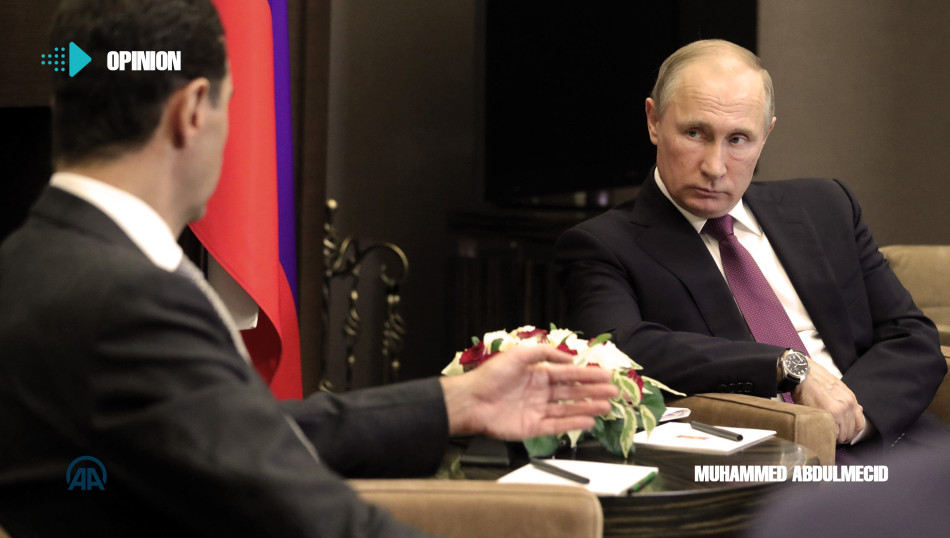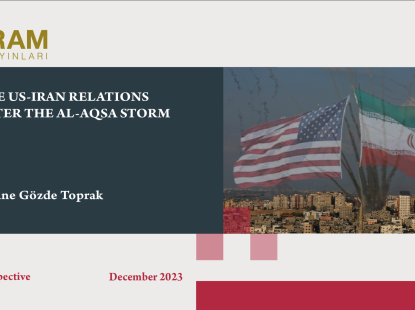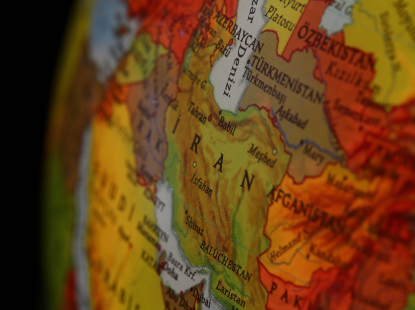Criticism Increases from the Russian Media against the Assad Regime
Some of the Russian media outlets have been heavily criticizing Assad, his family, and his associates on an unprecedented scale over the past two weeks. The criticism highlights issues, such as: corruption, the decline in Assad’s popularity among the public, the questioning of his legitimacy, and the public’s discontent with his performance. Some commentators described these media outlets which have put forth these criticisms as "lacking credibility", asserting that these publications had nothing to do with the decision-makers in Russia and were "absurd". In contrast, other commentators have underlined that the media outlets in question are close to the Kremlin, and have claimed that this situation actually demonstrates that the patience of Moscow is about to run out, largely due to Assad’s actions and the support given to him is coming to an end.
The attacks against Assad portrayed in the Russian media should not be evaluated independently from the latest developments in Syria. Even though the regime has dominated the country over a wide geographical arena, as a matter of fact the environment in which these attacks are taking place the economic conditions are worsening. These attacks have come amid important developments, such as: the publication of the report by the Organization for the Prohibition of Chemical Weapons on the use of chemical weapons against civilians by the Assad regime, the trial of two regime officers in Germany for the crimes for torturing and killing prisoners, the failure of the efforts of Moscow and the Assad regime to ease the sanctions due to the coronavirus outbreak, and having two months left until the weighing the sanctions under the Caesar’s Law on Assad, his supporters, and associates. In addition, Iran, an ally of the Assad regime, is also experiencing its worst times since the Islamic Revolution of 1979 and is losing its ability to help Assad. Therefore, it is necessary to take into account the effects of all these developments while evaluating the mentioned attacks.
How is Assad and His Associates Depicted in the Russian Media?
Criticisms towards Assad began with the writings published in the Russian Federal News Agency by Yevgeniy Prigozhin, the founder of the security firm Wagner group. Yevgeniy Prigozhin is also known for his proximity to Putin and is nicknamed as “Putin's Cook”. This process continued with the articles published in the Russian International Relations Council and the Pravda Newspaper, in which one of Russia's popular newspapers. In a series of articles, The News Agency criticized Assad's failure to fight corruption, finding him not only inadequate, but also suggesting that he was responsible for the increasing economic problems. Additionally, it was mentioned in the articles that Assad would not be able to manage the process in the upcoming periods. It was also emphasized among these points that the regime utilizes Russian aids for its own benefit; therefore, this high level of corruption would negatively affect the economic cooperation between the two countries. The Russian Federal News Agency stated in a published report that Assad had lost popular support to a great extent, due to the economic problems and corruption and also the public no longer trusted him to correct the problematic conditions in the country The news agency stated that the information was obtained through a telephone survey conducted by a Russian organization called the “Foundation for the Protection of National Values” over the phone in areas controlled by the Assad regime. According to this study, conducted with the participation of 1,400 Syrian citizens, 32% of the citizens would support Assad’s candidacy in next year’s elections, while 54% of them would be against his candidacy. %40 of those who attended the survey put forth that the Assad administration as not legitimate. While the performance of Assad was evaluated negatively by 41% of the participants, only 33% of them favored it. 71% of the participants believe that the administration-level corruption is the biggest problem in the country and that the sanctions are not the main cause for the bad economic conditions. Another article reported on the ongoing criticism towards the Assad regime, stating that while the Syrian people were struggling with severe problems, Assad had bought an $ 8 million painting for his wife.
On April 17th, the International Relations Council, close to the Russian Foreign Ministry, published an article penned by Russia's former ambassador of Damascus, Aleksandr Aksenyonok. The article stated that the biggest challenge facing the regime is not by terrorism, but by the economy, and added that the conditions for the implementation of post-war reconstruction projects in Syria have not been met yet. The author urged the Russian government to review its attitude towards Syria's future and the fate of the regime officials, reminding them that the reconstruction is impossible while the regime's current stance continues. Another commentator stressed that Russia must engage in the economy of Syria and overcome corruption just as it did with terrorism.
The Pravda Newspaper targeted Assad's family, relatives, and especially his brother Maher and cousin Rami Makhlouf. According to the newspaper articles, Maher Al-Assad was portrayed as an economic terrorist who took $ 1 billion in bribes to help subvert the international sanctions imposed on Saddam. Moreover, it was stated that he was implicated in the assassination of the former Prime Minister of Lebanon, Rafic Al-Hariri. Another article refuted these claims that the Assad regime shut down several natural gas wells for security reasons and carried out military operations against ISIS in the past two weeks. According to the newspaper, the Assad regime is trying to justify the increase in power cuts with these claims. Thus, it aims to cover up the interests of the authorities in these cuts. Some articles also mentioned the relations of the Assad regime with ISIS and the purchase of oil from this organization.
What are the Intentions Laying behind These Criticisms?
It is not the first time that the Russian media outlets have voiced their criticisms about the Assad regime. However, the recent wave of heavy criticism seems to have taken place in an organized manner unlike its predecessors. It is important that the recent articles that reminds of Putin’s humiliating attitude towards Bashar al-Assad are published in media outlets that are close to the Kremlin. Even though this situation does not reflect the official stance of the Russian government, it is not possible to publish these articles without the green light of the Kremlin. Some of the reasons behind these attacks can be explained in several points. The most important reason is that the economic agreements between the two countries could not be implemented. The Russian administration was aware of the corruption in the regime. However, the Russian side is seriously concerned with the possible failure of Assad to fight against corruption, which might lead to Russia to lose its recent gains. Last year Russia urged the Assad government to tackle the corruption and this has not been taken seriously by the regime. Also, the attempts by the regime were implemented to deceive. In addition to this, Assad may have been slow in making concessions towards Russia. Therefore, the aim of the recent attacks of the Russian media could be to force Assad to abide by the previous agreements and make more concessions to Russia, especially after the conditions caused by the epidemic crisis and an unprecedented drop in the oil prices.
Syria has ended up in ruins after nine years of war, and without the help of the EU, the United States, and the Gulf States, Russia alone does not have the capacity to rebuild this country. For this reason, Russia is aware that this can only happen if the structural reforms are carried out in the political arena in Syria, and one of its objectives is to enable these countries and the EU to engage in the reconstruction projects in Syria in the post-war period. Moscow also knows that the other countries would not participate in the reconstruction process if Iran's role in Syria is not diminished and an agreed political solution on Syria is not reached. Therefore, reactions from Russia can be read as the pressure on the Assad regime to reduce Iran’s role in the regime and carry out structural reforms to attract foreign capital.
Another goal of these attacks could be to enforce the regime to comply with the agreement between Russia and Turkey in Idlib. Moscow is concerned that Assad intends on making moves in Idlib with the provocation of Iran and some Arab countries, which would result in jeopardizing this agreement.
In the wake of criticisms from Russia, the concerns of Iran that Moscow has changed its stance on Assad and reached an agreement on Assad's removal from Syria have increased. Indeed, the visit of Zarif, the Iranian Foreign Minister, to Damascus during the coronavirus outbreak can be evaluated in this respect. The goal of the visit was to learn about the recent developments in the relations between the Assad regime and some Arab countries, as well as to convey the message that Tehran would continue to support Assad if the Russians stopped supporting the Assad regime.
Conclusion
Moscow has come to a position to withdraw its support from Assad, provided that its interests in Syria are secured. Russia seems to have recently concluded that Assad has no serious will to manage the crisis in the country, carry out the structural reforms and fight corruption.
Indeed, the recent attacks by the Russian media on Assad can be read as indication of the distrust of Moscow towards the regime. However, these attacks do not mean that Putin would stop supporting Assad in the near future. It goes without saying that the Assad regime, which at this point did not show consent to the people’s participation in the country’s administration, should now obey its supporters’ decisions. Russia will not accept anything less than Assad’s full surrender to its own demands.











